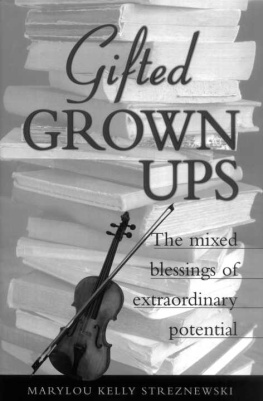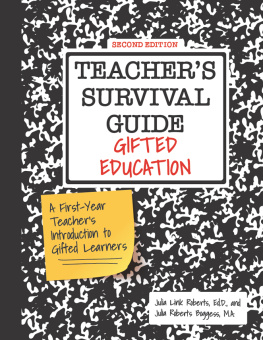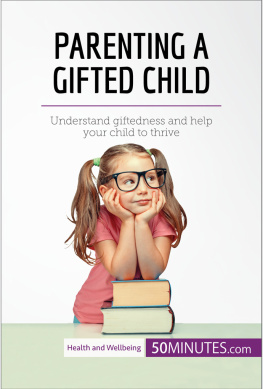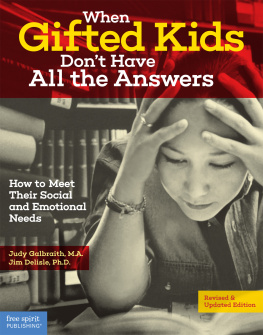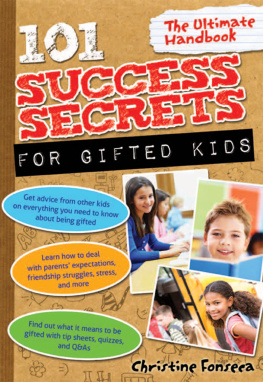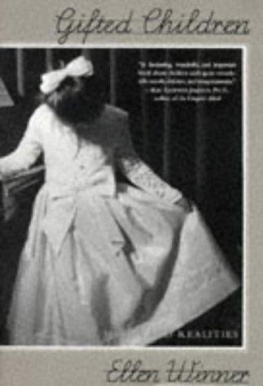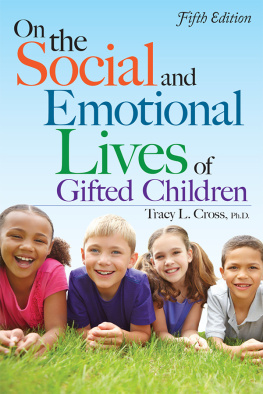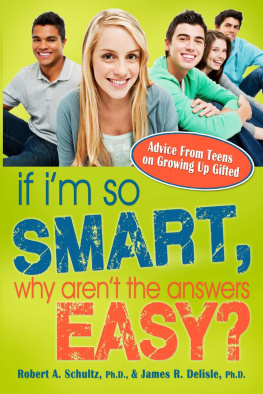Marylou Kelly Streznewski - Gifted Grownups
Here you can read online Marylou Kelly Streznewski - Gifted Grownups full text of the book (entire story) in english for free. Download pdf and epub, get meaning, cover and reviews about this ebook. year: 2008, genre: Politics. Description of the work, (preface) as well as reviews are available. Best literature library LitArk.com created for fans of good reading and offers a wide selection of genres:
Romance novel
Science fiction
Adventure
Detective
Science
History
Home and family
Prose
Art
Politics
Computer
Non-fiction
Religion
Business
Children
Humor
Choose a favorite category and find really read worthwhile books. Enjoy immersion in the world of imagination, feel the emotions of the characters or learn something new for yourself, make an fascinating discovery.
- Book:Gifted Grownups
- Author:
- Genre:
- Year:2008
- Rating:4 / 5
- Favourites:Add to favourites
- Your mark:
Gifted Grownups: summary, description and annotation
We offer to read an annotation, description, summary or preface (depends on what the author of the book "Gifted Grownups" wrote himself). If you haven't found the necessary information about the book — write in the comments, we will try to find it.
What is it like to be smarter than 95% of the people you meet? Fifty-four-year-old Alison says, They told me I was smart and I cried. I wanted to be sexy, or glamorous! Jean, 38, laments, I learned the whole job in six weeks, and now Im bored.
Gifted Grownups, Marylou Kelly Streznewskis unprecedented, 10-year study of 100 gifted adults, examines how being identified as a smart kid early on affects career choices, friendships, and romantic pairings later in life. Why do some talented and gifted people become Mozarts and Einsteins or corporate chieftains, while others drop out of school, struggle to hold down jobs, or turn to self-destructive behavior? What are the signs of giftedness, its pitfalls, and its promise? Marylou Streznewski provides answers to these and other questions, and creates an intriguing picture of what it is like to have an accelerated mind in a slow-moving world.
Traditionally, the gifted were measured in terms of intelligence only, and anyone with an IQ score higher than 130 was automatically grouped in with that misunderstood minority. Recently giftedness has been redefined to include qualities like extraordinary creative, leadership, or physical skills. Heightened perception, sensitivity, humor, and the ability to put complex ideas together quickly are also aspects of giftedness. These gifts affect the way talented adults react to their friends, families, jobs, and life challenges. Doing for gifted grownups what the bestselling Driven to Distraction did for adults with attention deficit, Gifted Grownups traces many types of gifted adults, including the high-testing, power-achieving Striver; the popular scholar or athlete Superstar; and the creative intellectual, free-spirit Independent. Here for the first time and in their own words, 100 gifted grownups, from ages 18 to 90, and a variety of family and educational backgrounds, occupations, social classes, and races, count the blessings and tally the costs of a high-powered mind. Highly informative and interesting.--Alice Miller, author of The Drama of the Gifted Child
This book was a delight. It affirmed my own experiences and observations. The author makes her study come alive . . . through the voices of real people talking about their experiences. . . . I highly recommend this book.i--Joanne Rand Whitmore, PhD, Professor and Dean College and Graduate School of Education, Kent State University
Many readers will recognize their own experiences.--Lita Linzer Schwartz, PhD, ABPP Distinguished Professor Emerita, Pennsylvania State University.
This thoughtful book . . . has taken us one step further in our understanding of how and why some talented individuals realize their potential while others do not.--Dr. Sally M. Reis, Professor of Educational Psychology, The University of Connecticut.
Gifted Grownups meets a long-awaited need. This book would be of interest, not only to gifted education professionals, but also to parents, teachers in general, and to gifted individuals of all ages.--E. Paul Torrance, Georgia Studies of Creative Behavior, author of Gifted and Talented Children in the Regular Classroom. ISBN 0-471-29580-9
292 pagesPublished (first published March 15th 1999)
Marylou Kelly Streznewski: author's other books
Who wrote Gifted Grownups? Find out the surname, the name of the author of the book and a list of all author's works by series.

